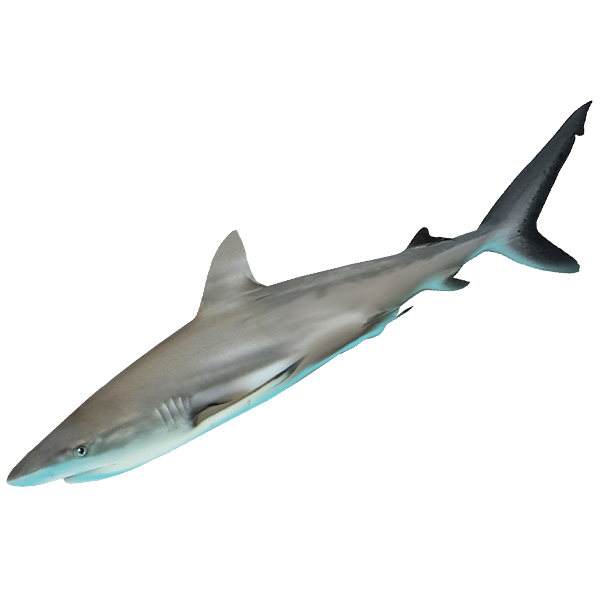Negaprion brevirostris
Lemon Shark
Maximum Size:
11 ft (3.4 m), 405 lb (183 kg)
Longevity:
About 30 years.
Typical depth:
3–302 ft (1–92 m)
Behavior:
Lemon sharks are found on both sides of the Atlantic Ocean as well as the eastern shore of the Pacific Ocean, from southern California to Chile. The name stems from the sharks’ color, which is lighter than most sharks and helps it blend into sandy backgrounds – its preferred habitat. Lemon sharks feed most often at night on a range of fish and crustaceans. Larger lemon sharks may even eat smaller lemon sharks. They return to specific nursery sites where they give birth to live young.
Predators:
Larger shark species, such as bull and tiger sharks.
WARNING!
Although attacks on humans by lemon sharks are very rare, they have been known to cause injury if they feel threatened or cornered. Warning signs of an attack include head swings, exaggerated swimming, back arching and lowered pectoral fins. Attacks usually result in biting or raking with the teeth, which can cause deep lacerations. The severity of shark bites often depends on the species that bites. There have been very few documented attacks on humans by lemon sharks and no known fatalities.
TREATMENT
Exit the water as soon as possible. Rinse the affected area with soap and water. Apply pressure to control the bleeding and elevate the affected limb above the heart. It is not unusual for someone bitten by a shark to require treatment for shock. In this case, keep them warm, calm and in the shade, and do not provide anything to eat or drink. Lay the person on their back and elevate their legs above their head. Seek medical attention as soon as possible, even for minor bites, which will probably require cleaning and suturing.
MEDICAL DISCLAIMER
The treatment advice contained in this book is meant for informational purposes only and is not intended to be a substitute for professional medical advice, either in terms of diagnosis or treatment. Always seek the advice of your physician or other qualified health provider if you are injured by a marine organism. Never disregard professional medical advice or delay seeking it because of something you have read in this book.

